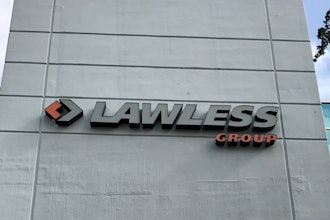“All the adversity I've had in my life, all my troubles and obstacles, have strengthened me... You may not realize it when it happens, but a kick in the teeth may be the best thing in the world for you.”
– Walt Disney
Selling in the current oil & gas market might feel like a kick in the teeth. This industry is facing tough times. Some believe crude could dip to as low as $15 or $20 a barrel. Consumers at the pump welcome this trend. Economists believe lower fuel prices heat up the economy. However, organizations selling in oil & gas markets are struggling. One industry salesperson summed up the entire industry sentiment by saying, “I miss $4.00 a gallon.”
During tough times, organizations tighten their grip on resources. Customers are more resource conscious. Customers build cash reserves to weather tough times. Salespeople experience this pain with fewer orders and slimmer margins. Since customers buy differently during tough times, salespeople need to sell differently.
Free Whitepaper: 4 Ways Better Market Segmentation Leads To Higher Sales
During tough times, some customers stop buying all together. Salespeople view customers not buying as their cue to stop selling. Salespeople will stop presenting products and asking for the business. In a recent seminar, one salesperson explained that they feel guilty asking for business knowing the customer cannot buy. Internal research shows that salespeople reduce face time with customers during tough times.
Businesses going through tough times have three options: fail, survive, or thrive. Tom Peter, the author of In Search of Excellence, says that during tough times, 25 percent of businesses fail, 70 percent survive, and 5 percent thrive. Tough times create long-term opportunities for organizations. Tough times demand your best. Tough times don’t last, but tough people do. Here are some tips to help you sell in tough times and tough markets.
Focus on creating value versus making a sale
Value-added customers view supplier relationships as an investment, not a transaction. During tough times, they cash in on that investment. Customers need more value during tough times. Ask yourself the following questions to create more value for your customer.
- How can I help my customer maximize their investment?
- How can I make it easier for our customer to do business with us?
- How can our organization offer more support?
- Ask the customer, “What can we do to help your organization during these tough times?”
Tough times can occur in any industry at any time. Customers will remember the tough times. What will they remember about you in the tough time?
Increase activity
Salespeople react to tough times by reducing call volume. In Tom Reilly’s book, How to Sell and Manage In Tough Times and Tough Markets, he shows that salespeople reduce customer face time by 38 percent. In tough times, customers need reassurance from suppliers. They need more attention, not less.
For value-added salespeople, this creates an opportunity to build new relationships. If your competition reduces their face time with customers, then increase your prospecting efforts. Spending more time with prospects during tough times positions you as the go-to supplier in good times.
Be positive
The greatest salespeople are positive. During tough times, people need to hear good news; they want hope. One of the most positive salespeople I know lives in Detroit and sells in the auto industry. During the Great Recession, several customers called him to schedule appointments. These customers couldn’t buy anything, but they continued scheduling appointments. Finally, the salesperson said to the customer, “I understand this is a tough time and you’re on a spending freeze…So, Why do you keep scheduling appointments?” The customers responded, “I know we cannot buy anything. But your positive attitude is contagious. We need you here to cheer up the office.”
People want hope during tough times. A positive attitude can give them that hope. Being a hope merchant is a unique way to create value for your customers.
Stretch the time horizon
The oil industry has experienced several boom and bust cycles. If the current bust cycle is too depressing, go to the future or revisit the past. Transport the customer into the future by stretching their time horizon. This causes the customer to think long term. Here are some questions to help stretch your customer’s time horizon.
- Fast forward 12 months from now. Where would you like to be and how can we help you get there?
- Looking at previous industry downturns, what did you do to make sure you emerged stronger?
- Hindsight is 20-20. What do you wish you would have done during the last recessionary period? What can we do differently during this tough time?
These question cause the customer to think long term. Customers who think long term are more open to a value-added solution.
Celebrate your team’s success
Look for opportunities to celebrate successes. Look for positive momentum or small wins. People are hungry for success during tough times. During tough times, we crave progress in meaningful work. Celebrating small wins or progress will keep your people motivated and engaged. Small wins can be anything: an order form a new account, meeting a new decision-maker, winning a new project, scheduling a demo, arranging a factory tour, meeting with a new prospect. Find a way to celebrate success.
Adjust your value proposition
If your value proposition focuses on the benefits of purchasing new capital equipment, then what happens if customers aren’t purchasing new capital equipment? Customers define value differently in tough times. Your value proposition should reflect their current definition of value.
Make your customer aware of other ways you create value. Consider focusing your value proposition on the after-market services you provide, for example: repairs, spare parts, maintenance, warranties, trade-ins, vendor managed inventory, customer loyalty programs, or training programs. Your value proposition has to be flexible in tough times.
It seems that every organization hits the pause button during tough times. Organizations are satisfied just maintaining the status quo. While some companies press pause, others press on. During tough times, value-added peak competitors grow. Value-added peak competitors view a still market as an opportunity to move ahead.
Remember, during tough times 25 percent of businesses fail, 70 percent survive, and 5 percent thrive. During tough times, too many organizations ask, “How can we survive?” and very few ask, “How can we thrive?”
Paul Reilly is president of Reilly Sales Training. Reilly Sales Training is a St. Louis-based, privately owned company that specializes in training sales professionals, sales managers, and service professionals. Reilly Sales Training offers public seminars, in-house sales training programs, and hiring and training assessments.
More from Paul Reilly:























